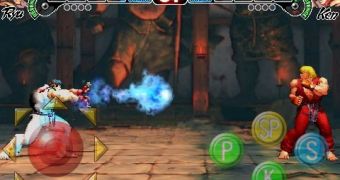Capcom, the creator of hit arcade title Street Fighter, has confirmed plans to deliver an iPhone port of Street Fighter IV this March, with a control scheme suitable for touch-screen play, and character models that are faithful to the original console game.
IGN is able to confirm that Capcom has been working for months on the suitable controls for a platform with no physical buttons. It eventually employed a virtual pad and customizable buttons, in an effort to recreate arcade controls. The game features a multiplayer mode, and includes a Dojo Mode for training, the site reveals. The title’s price is yet to be revealed, but Capcom seems confident it will see Street Fighter IV approved in the App Store next month. Softpedia trusts the price will not be higher than seven bucks.
According to IGN, other details about the iPhone port of Street Fighter IV include: - it will feature the same character models, just slightly scaled down, with minimal loss of detail or color; - fan-favorite fighters beyond Ryu and Ken will be available, although these are the only two characters Capcom was willing to confirm; - each fighter has their complete move set, including the Ultras, and over-the-top Ultra animations; - there will be a number of control configurations to choose from to find your favorite position, button transparency, and overall set-up; - two player VS battles via Bluetooth, just like the arcade or console edition.
Softpedia note
In our experience with fighting and racing games on the iPhone, on-screen controls could never hit all the right spots. In racing games, you need actual buttons to feel like you’re accelerating or braking. In fighting games, there’s a bigger chance of missing a dodge, or failing to apply a blow to your opponent. Let’s not even go into the fact that your fingers block portions of the screen during gameplay. Sometimes, you make mistakes just because your finger was in the way. All in all, real gaming still relies on real button mashing, Softpedia believes.

 14 DAY TRIAL //
14 DAY TRIAL //